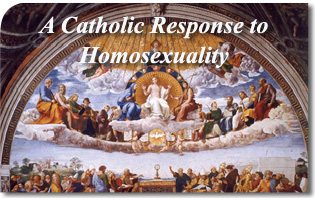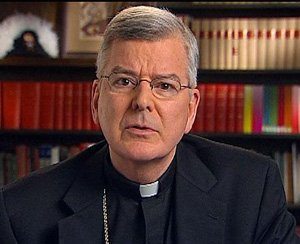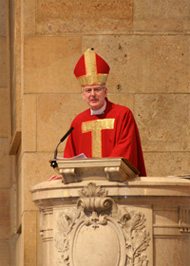 Interview with the Most Reverend John C. Nienstedt, Archbishop of Saint Paul and Minneapolis, by Michael Drake
Interview with the Most Reverend John C. Nienstedt, Archbishop of Saint Paul and Minneapolis, by Michael Drake
Archbishop John Clayton Nienstedt was born in March 1947, in Detroit, Mich. Following his studies at Sacred Heart Major Seminary in Detroit, and the Pontifical Gregorian University in Rome, he was ordained to the priesthood in July 1974, at Sacred Heart Church, Dearborn, Mich. In May 2008, Pope Benedict XVI appointed him Archbishop of Saint Paul and Minneapolis.
Since June of this year, Archbishop Nienstedt has being urging support for an amendment to the constitution of Minnesota to protect marriage as the union of one man and one woman. Minnesotans will vote on this amendment in November 2012. In this interview for Crusade Magazine he discusses some of the reasons why Catholic clergy and laity should defend true marriage.
Crusade: The media is currently insisting that public opinion is favoring same-sex marriage, even though no popular referendum has shown support for it. What are your thoughts on this?
Archbishop Nienstedt: I’m not an expert on this but the majority of people, and most of the people I talk to, see marriage as a reality between one man and one woman; the commitment of one man and one woman that you make for life, and they see it as the backbone of family life and family cohesion.
I become a little dubious of the media telling us that people don’t believe in marriage anymore, because I don’t know that’s true. That has not been my experience.
Even if it were to be my experience, I think there is an obligation on our part as pastors of the Church to try and turn that around. To be persuasive in letting people know that marriage is to stay the same.
I read the other day, something that could be put on a bumper sticker. It said, “The difference is in the difference.” And the complementarity of man and woman seems to me to be just so obvious! That is the way God intended it to be.
Crusade: If homosexuality did achieve a popular victory, what would be the response of the Church?
Archbishop Nienstedt: The Church has to continue to proclaim the truth in season and out; and the truth is that God calls only one man and one woman to that complementary relationship which we call marriage. Jesus raised marriage to a sacrament, so how anyone who has the Christian faith can believe otherwise is a mystery to me.

Crusade: In Minnesota, what has your experience been in your campaign to defend traditional marriage?
Archbishop Nienstedt: Our house and senate just passed a resolution to put a constitutional amendment on the ballot for 2012 defining marriage as a union between one man and one woman.
There’s been a lot of opposition to that. Unfortunately, with opposition the squeaky wheel usually gets the attention and obviously the media have it as an agenda. I wrote an article in my paper some time ago indicating that the media is trying to stereotype this action as being mean spirited, prejudicial and anti-homosexual. It’s really not anti anything: It’s a very positive thing – it’s for marriage.
Whatever society decides to do with other relationships is one thing, but marriage is the reality that we ought not to redefine, or rather un-define, which is basically what they’re doing to the reality of marriage, which we’ve known from the beginning. The institution of marriage predates any of our institutions, including any government and any institution of religion. Therefore, it’s something that we have to uphold.
Crusade: What is the effect of portraying Catholic doctrine as being bigoted, having on those trying to preach Catholic doctrine?
Archbishop Nienstedt: It’s obviously meant to intimidate and I think there are various levels of that kind of intimidation. I had a priest just recently tell me that he preached on the topic right after we had a constitutional amendment passed to defend marriage, and he chose that opportunity to preach on it and he had a very vocal person excoriate him for doing this, which is always traumatic.
On the other hand, three times as many people came up and congratulated him for mentioning the reality of marriage and for upholding marriage, so it will be interesting to see. I think we just need to hope that we will have people of good will and of faith get out and vote in November of 2012.
The other thing that has been said is that in Minnesota we got the DOMA act, and therefore this act is not necessary and because of that people feel it’s mean spirited; they just need to look what happened in Iowa in 2010 when the Justice system overturned it.
Also, each year the bishops meet our senators and leaders in congress and Margaret Kelliher, who is supposed to be a Catholic, was the speaker of the [Minnesota] House [of Representatives] in 2010. And when we talked to her about this issue I asked, “are you going to let the people vote on this, because I believe the people have a right to vote on that,” and she said “No, no. We are going to do that. We’re going to change it ourselves.” So she was very blunt in terms of telling me the house’s plans.

I think people ought to know that there is a threat out there. Either through congressional action or judicial action, this is a very vulnerable situation. So I think the constitutional amendment is absolutely needed.
Crusade: The Church and state have other restrictions on marriage like degree of kinship, age of consent, having at least a minimal possibility of consent.
Archbishop Nienstedt: I said that to some people when we were talking to Margaret Kelliher. I asked, “How can you, especially as a Catholic, take this position?” She said, “I believe in love,” and I said, “Well, you wouldn’t let a father marry a 17-year old daughter,” and she said, “What!?” I said, “You heard me. There are times when the government has to step in and say, “This is not right and this should not be allowed.”
Crusade: As a country, how did we come to the point were the obvious restrictions on marriage are even being debated?
Archbishop Nienstedt: I don’t know how we got here. I’m baffled that here we are in 2012 with as much data that we have around and that people could be questioning the definition of marriage. I think it’s just incredible.
Crusade: You brought up the DOMA law; many of the Catholics who voted for DOMA under Clinton are now switching sides and opposing the DOMA law they had voted for. How should the Catholic response be to these politicians openly flaunting Catholic teaching in their public lives?
Archbishop Nienstedt: We have to be very straightforward in terms of telling them what our teaching is, convincing them that they are wrong in this and that they are giving in to political persuasions rather then holding to the principles that are inherent to this.
Crusade: One of the first things that are hurled at Catholics involved in the issue is the sex abuse crisis, in an effort to diminish the credibility of the Catholic voice. How should we respond to this?
Archbishop Nienstedt: We have to admit that this is a very sad spot on our record, obviously. But as wrong as sexual abuse by clergy or by anyone is, we believe and teach that sex between two people of the same sex is also wrong.
Two evils don’t make a good. Yes, about 4% of the clergy over the past 20 years have committed abuse and that’s a terrible thing and it’s something that we have to do penance for and make sure it never happens again. It does leave us vulnerable and has weakened the Church’s voice. Nevertheless, we have to continue to proclaim the truth because people’s salvation depends on it.

